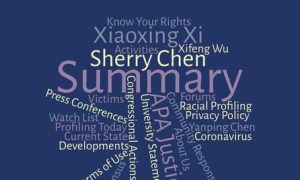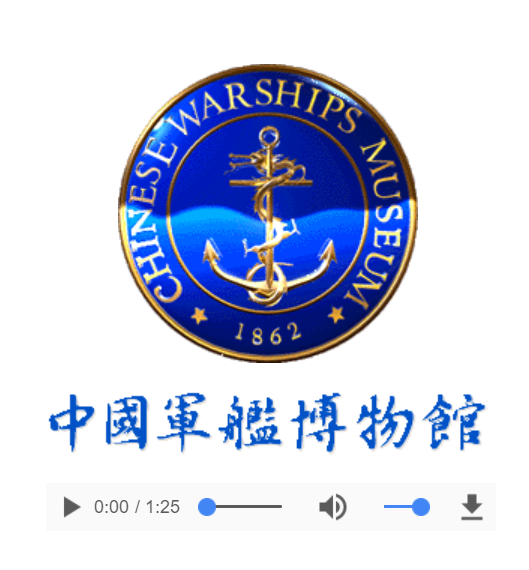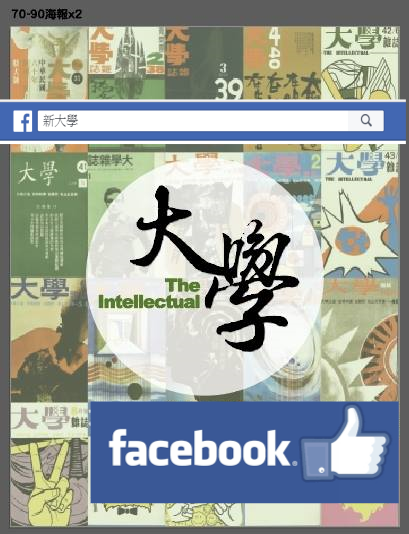♦ 本篇文章轉載自 APA Justice。若有侵害著作權,請速告知,我們將盡速移除 ♦
2024/10/7
APA Justice Meeting – Monday, 2024/10/07 1:55 pm Eastern Time / 10:55 am Pacific Time
1. Remarks by Congresswoman Grace Meng
Speaker: Grace Meng, Member, U.S. House of Representatives; First Vice-Chair, Congressional Asian Pacific American Caucus (CAPAC)
Congresswoman Grace Meng is serving her sixth term representing New York's Sixth
Congressional District in the U.S. House of Representatives. She is the first and only Asian
American Member of Congress from New York State. Grace serves on the House
Appropriations Committee, where she is New York's senior member and is the Vice Ranking Member.
During the monthly meeting, Congresswoman Meng delivered a heartfelt message, beginning by expressing gratitude for the invitation and recognition of her fellow colleagues. She gave special praise to Texas State Representative Gene Wu for his leadership and advocacy for the Asian American and Pacific Islander (AAPI) community during these challenging times.
Congresswoman Meng also highlighted the critical role of Chair Judy Chu, Senator Mazie Hirono, and the Congressional Asian Pacific American Caucus (CAPAC), who have been working tirelessly to combat discriminatory legislation.
Congresswoman Meng voiced her concern over the intensifying anti-China rhetoric in Congress. She specifically mentioned the recent attempt by House Republicans to pass a bill that could reinstate the China Initiative, which unfairly targeted individuals of Chinese descent under the guise of national security. While the bill is unlikely to pass in the Senate, Congresswoman Meng emphasized that such efforts continue to harm the AAPI community.
In response, Congresswoman Meng and CAPAC urged Congressional leadership to remove language that would restart the China Initiative from the final government spending bill for 2025. She commended organizations like the Asian American Scholar Forum, Advancing Justice | AAJC, and APA Justice for their advocacy during “China Week” and beyond, and gave a special mention to Casey Lee for her contributions.
Congresswoman Meng also raised alarm about Project 2025, a Republican policy roadmap that includes reinstating the China Initiative and ending family-based immigration, a move that would disproportionately impact Asian American communities.
Project 2025 also calls for cutting funding to vital programs like food assistance and healthcare, directly affecting vulnerable populations, including the 4.5 million AAPI Medicaid recipients. It also targets reductions in the H1B visa program, which would harm skilled workers, many of whom are from AAPI communities.
Congresswoman Meng stressed that these issues are not about party politics but about safeguarding the future and well-being of our community.
Despite these challenges, Congresswoman Meng remains committed to fighting discriminatory policies and advancing progressive initiatives.
One such initiative is the creation of the National Museum of Asian Pacific American History in
Washington DC. The first legislation to establish the museum as part of the Smithsonian Institution was passed in 2022, and Congresswoman Meng is excited to continue working on this project. The museum will preserve and celebrate the rich histories and cultures of Asian Pacific Americans.
In closing, Congresswoman Meng reflected on the hardships the AAPI community has faced, particularly during the pandemic, and urged continued unity and collaboration to address the challenges ahead.
2. CAPAC Updates
Speaker: Nisha Ramachandran, Executive Director, Congressional Asian Pacific American Caucus (CAPAC), 该 Email 地址已受到反垃圾邮件插件保护。要显示它需要在浏览器中启用 JavaScript。
Nisha was on leave.
Casey Lee, Policy Director for CAPAC, expressed gratitude to Congresswoman Meng and her team for their leadership in preparing the letter to Congressional leadership, urging them to stop the reinstatement of the China Initiative in the Fiscal Year 2025 Commerce, Justice, and Related Agencies appropriations bill.
This effort marks a continuation of CAPAC’s previous successes. CAPAC remains committed to ensuring the community’s voice is heard and represented not only in appropriations bills but also in the National Defense Authorization Act (NDAA) and other critical legislative measures. Over the coming months, CAPAC will prioritize discussions with Congressional leadership, committee staff, and key stakeholders to shape these important legislations. Congresswoman Meng has already provided an excellent overview of the legislative landscape, particularly highlighting the potential impacts of Project 2025 on the AAPI community.
Casey reported that CAPAC recently posted a video (3:51) on X, formerly Twitter,
(https://bit.ly/3zzfwxA) and Instagram (https://bit.ly/4eeTHCH), sharing firsthand accounts of the harmful effects of the China Initiative. The initiative, which unfairly targeted academics of Chinese descent, resulted in racial profiling and the wrongful arrests and prosecutions of innocent researchers. Professors Gang Chen, Anming Hu, and Franklin Tao, along with Hong Peng, Professor Tao's wife, shared their experiences in the video. Casey encouraged organizations and individuals to share it widely to raise awareness.
Casey also thanked the Asian American Scholar Forum (AASF), the Asian Americans
Advancing Justice (AAJC), and Chinese for Affirmative Action for their collaboration with CAPAC during "China Week," emphasizing the importance of amplifying these stories. This partnership continues to play a crucial role as CAPAC participates in legislative negotiations surrounding the NDAA and standalone bills in the House, ensuring the community is protected during this critical time.
3. Anti-Profiling, Civil Rights & National Security Program - Asian Americans Advancing Justice | AAJC
Speaker: Joanna YangQing Derman, Director, Anti-Profiling, Civil Rights & National Security Program, Advancing Justice | AAJC
Joanna was on leave.
4. Update from Asian American Scholar Forum
Speaker: Gisela Perez Kusakawa, Executive Director, Asian American Scholar Forum
(AASF), 该 Email 地址已受到反垃圾邮件插件保护。要显示它需要在浏览器中启用 JavaScript。
Gisela expressed her gratitude to Congresswoman Grace Meng for her leadership on the letter opposing the reinstatement of the China Initiative and her support for the creation of the Museum of Asian Pacific American History.
AASF successfully attracted over 1,000 participants to its award ceremony during last year’s annual convening, celebrating the contributions of Asian American scholars. Gisela emphasized the importance of educating the community on these contributions and noted AASF's role as a task force member for the Museum's establishment, alongside its ongoing policy efforts.
Gisela also thanked Casey Lee and the CAPAC team for providing opportunities to educate
Congressional members and the public during "China Week." Drs. Anming Hu, Gang Chen, and Franklin Tao shared their experiences, offering a human perspective on current and historical issues facing the community. These scholars, along with Dr. Xiaoxing Xi, received the American Courage Awards from Advancing Justice | AAJC, joining the ranks of past honorees like Senator Mazie Hirono and Acting Labor Secretary Julie Su.
Gisela expressed pride in AASF’s ability to recognize civil rights icons within the Asian American advocacy space, ensuring that Asian American scientists are not scapegoated and can uphold their reputations and legacies. This commitment is part of AASF's broader mission to foster national change.
Gisela also highlighted AASF's role in connecting university faculty with policymakers, providing support in navigating difficult climates, and facilitating media outreach. She encouraged faculty members to engage in these efforts, emphasizing that every voice matters in the fight for justice.
Gisela provided an update on the public forum with the National Institutes of Health (NIH), mentioning a follow-up survey aimed at fostering transparency and engagement. She encouraged attendees to share their concerns and visions for the future, ensuring that the community's feedback is heard.
Ultimately, Gisela underscored the importance of maintaining a seat at the table in discussions about policies affecting the Asian American community and beyond, reiterating AASF's commitment to continued collaboration with the community.
5. Update from the U.S. Heartland China Association
Speakers: Min Fan, Executive Director, U.S. Heartland China Association (USHCA)
- 2024/10/10 China in the Heartland: Building a Balanced Approach
- 2024/06/07-12 4th Annual U.S.-China Agriculture Roundtable, 1890 Land Grant University Agriculture Education Delegation to China
Min Fan, Executive Director of the U.S. Heartland China Association, introduced USHCA to us at the February 2024 monthly meeting.
Min Fan warmly invited meeting participants to join an upcoming hybrid event "China in the
Heartland: Building a Balanced Approach" at the University of Kansas (KU) in Lawrence, Kansas. Former KU Professor Franklin Tao and his wife Hong Peng plan to attend and engage in discussions.
This event has been in planning for over a year. It involved collaboration with local Chinese American scholars and the National Committee for U.S.-China Relations to ensure a meaningful exchange on pertinent topics. The emphasis is on fostering local engagement and informed debate around broader issues affecting the community.
Min underscored the importance of having discussions about U.S.-China relations not just in Washington, D.C., but also in the Heartland. The U.S. Heartland China Association, a bipartisan organization founded by late Senator Adlai Stevenson III of Illinois and currently chaired by Former Governor of Missouri Bob Holden, aims to promote stable U.S.-China relations to protect and advance the interests of the Heartland community, such as export market for our agricultural producers, global competitiveness of our businesses, talent attraction in our universities, and the cultural heritage of Chinese Americans In the Heartland.
Min, who is the first Chinese American executive director of the organization, highlighted that parts of the Heartland believe strongly in the necessity of working with China. USHCA works with the State Department for guidance and believes that subnational diplomacy is still very important.
During the summer, USHCA organized an agricultural delegation to China, which included members from rural areas who had never visited the country before. One delegate from Kentucky returned with a renewed perspective, expressing to his governor and commissioner that China was nothing like the negative portrayals in the media. This experience illustrated the potential benefits of fostering better relations and understanding between the two nations. (From Heartland to Mainland, reflections and insights, webinar replay)
The trip was 100% funded by US Agriculture stakeholders.
Despite facing political attacks for their initiatives, including criticism from Congressman Jim Banks of Indiana, USHCA remains committed to promoting constructive dialogue.
Min mentioned a recent visit from the FBI, highlighting the scrutiny faced by Chinese Americans in leadership roles within nonprofits focused on U.S.-China relations. She is one of very few Chinese Americans leading a non-profit organization on U.S.-China relations.
USHCA also faced significant political backlash after sending a bipartisan delegation of six mayors to China (Press Release, Video recap). Despite the challenges, including public criticism and accusations of undue influence, the organization continues to work closely with the State Department and other agencies to promote national diplomacy and collaborative efforts around pressing issues like climate change.
Min highlighted an upcoming event scheduled for November 15 in Memphis, which aims to engage local partners, NGOs, and academics in a Yangtze-Mississippi Regional Dialogue about climate resilience, low carbon agriculture, and green transportation. This initiative seeks to promote balanced discussions in the Heartland, inviting broader community involvement and partnerships. The goal is to engage diverse local stakeholders in more informed conversations about U.S.-China relations and the future of Chinese Americans in this region.
In closing, Min expressed gratitude for the opportunity to share insights with the broader community and emphasized the importance of ensuring that diverse voices are heard in discussions that shape the future. She called for continued collaboration and support to facilitate these critical dialogues and foster understanding among all stakeholders involved.
6. Gene Wu on Anti-Asian Laws in America
Speaker: Gene Wu, Texas State Representative
- 2024/10/01 Gene Wu: ANTI-ASIAN LAWS IN AMERICA - Past, Present, & What’s Coming (national version)
- 2024/09/29 Gene Wu: Town Hall on ANTI-ASIAN LAWS IN AMERICA - Past, Present, & What’s Coming (national version) (video 49:37)
State Representative Gene Wu serves the constituents of District 137 in the Texas House and is also an attorney in private practice. A dedicated advocate for the Asian Pacific American community in Texas and across the nation, Gene is committed to raising awareness and fostering dialogue about the pressing issues facing Asian Americans today. He regularly hosts town hall meetings and travels nationwide to engage with communities and promote understanding.
Gene began his remarks by expressing profound gratitude to Congresswoman Grace Meng for her unwavering leadership in advocating for the Asian American community. He underscored the urgent need for awareness regarding the rising anti-Asian sentiment and legislation that disproportionately impacts Chinese Americans. This acknowledgment of the broader context of discrimination serves as a foundation for his call to action.
Highlighting his recent travels to states like Tennessee and Florida, Gene shared his experiences engaging with Asian American communities and raising awareness about these critical issues. In Tennessee, for instance, a law was initially enacted that barred all immigrants from purchasing land but was later amended to specifically target Chinese individuals. This shift exemplifies a troubling trend across the United States, where anti-Chinese and anti-Asian measures are increasingly pervasive.
Gene noted that there are currently 24 states with some form of anti-Asian land law legislation, with 13 of these states imposing restrictions explicitly against Chinese individuals. He traced this alarming trend back to historical patterns of discrimination, recalling how anti-Asian sentiments have roots that extend to the 1850s when waves of Chinese and Japanese immigrants faced similar oppressive laws.
Drawing parallels between past and present discrimination, Gene recounted how laws from the late 19th and early 20th centuries specifically targeted Asian communities. Often justified under the guise of national security, these laws include the infamous Chinese Exclusion Act and other discriminatory measures against Japanese immigrants. He highlighted that such practices were not only legislated but also deeply embedded in societal attitudes toward Asian Americans. Gene cautioned that many within the community might dismiss these discriminatory practices as benign, believing they only affect specific groups like those from mainland China. He emphasized that this perspective is fundamentally flawed, as it sets a dangerous precedent where discrimination can escalate unchecked.
Reflecting on significant historical moments when anti-Asian sentiments were codified into law, Gene recalled restrictions placed on Chinese women in the 1870s aimed at controlling population growth and the anti-alien laws passed in California in the early 1900s. He stressed that many of these laws remained in effect until the mid-20th century, highlighting a longstanding legacy of dehumanization and discrimination against Asian communities in America.
Gene pointed out that the modern narrative of suspicion and fear directed at Chinese Americans is not a new phenomenon but rather a continuation of historical patterns of vilification and scapegoating. He called attention to the inflammatory rhetoric from prominent political figures, including Donald Trump and JD Vance, who portray Chinese Americans as threats to national security. Such rhetoric perpetuates a cycle of fear and distrust that not only harms Chinese Americans but also has broader implications for all Asian communities. Gene warned that this kind of vilification can lead to severe consequences, drawing parallels to the injustices faced by Japanese Americans during World War II when many were forcibly relocated to internment camps despite being U.S. citizens.
Challenging the notion that only certain Asian groups are targeted by discrimination, Gene asserted that all Asian Americans are perceived as potential threats in a climate of suspicion. He urged the community to acknowledge this shared vulnerability and the necessity for solidarity among Asian Americans of all backgrounds. The historical context of discrimination serves as a crucial reminder that complacency can lead to dire repercussions. Gene called for heightened awareness and activism within the Asian American community, emphasizing that understanding the history of discrimination is vital to effectively combating the resurgence of these harmful ideologies.
Gene also addressed the recent surge in anti-Asian violence that escalated during the COVID19 pandemic. Gene asserted that the violence and discrimination faced by Asian Americans, irrespective of their specific ethnic backgrounds, underscores the urgency of collectively addressing these pressing issues. He emphasized that current societal attitudes toward Asian Americans are not isolated incidents but rather part of a broader historical narrative of discrimination that demands attention and action.
In conclusion, Gene issued a rallying call for the Asian American community to awaken from complacency and recognize the challenges that lie ahead. He implored individuals to confront the systemic nature of racism and discrimination against Asian Americans, urging them to advocate for themselves and their communities. The resurgence of old hate signals that the struggles faced by Asian Americans in the past are far from over. It is crucial for everyone, especially the Asian American community, to unite in combating these threats. Gene's message serves as a vital reminder of the necessity for vigilance, solidarity, and action in the face of rising anti-Asian sentiments and discriminatory legislation.
7. Q&A and Discussions
8. Next Meeting
November 4, 2024, is on the eve of Election Day. We therefore moved the next monthly meeting to Monday, November 18, 2024, starting 1:55 pm ET/10:55 am PT
♦ 專文屬作者個人意見,文責歸屬作者,本報提供意見交流平台,不代








